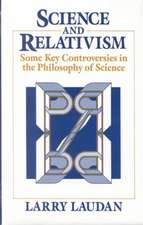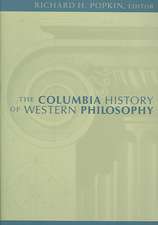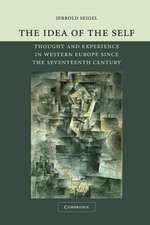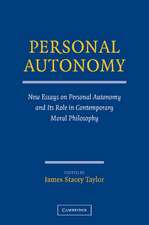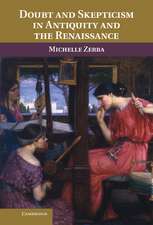Hegel: Religion, Economics, and the Politics of Spirit, 1770–1807: Ideas in Context, cartea 6
Autor Laurence Dickeyen Limba Engleză Paperback – 23 noi 1989
Din seria Ideas in Context
- 9%
 Preț: 592.57 lei
Preț: 592.57 lei -
 Preț: 200.63 lei
Preț: 200.63 lei -
 Preț: 200.27 lei
Preț: 200.27 lei -
 Preț: 178.15 lei
Preț: 178.15 lei -
 Preț: 200.37 lei
Preț: 200.37 lei -
 Preț: 200.41 lei
Preț: 200.41 lei -
 Preț: 230.08 lei
Preț: 230.08 lei -
 Preț: 240.27 lei
Preț: 240.27 lei - 9%
 Preț: 627.25 lei
Preț: 627.25 lei -
 Preț: 224.34 lei
Preț: 224.34 lei - 11%
 Preț: 695.06 lei
Preț: 695.06 lei - 11%
 Preț: 693.36 lei
Preț: 693.36 lei - 9%
 Preț: 626.77 lei
Preț: 626.77 lei - 9%
 Preț: 626.34 lei
Preț: 626.34 lei - 11%
 Preț: 626.38 lei
Preț: 626.38 lei -
 Preț: 246.32 lei
Preț: 246.32 lei - 8%
 Preț: 530.32 lei
Preț: 530.32 lei - 9%
 Preț: 592.79 lei
Preț: 592.79 lei - 27%
 Preț: 648.34 lei
Preț: 648.34 lei - 9%
 Preț: 592.05 lei
Preț: 592.05 lei -
 Preț: 186.95 lei
Preț: 186.95 lei -
 Preț: 188.70 lei
Preț: 188.70 lei -
 Preț: 192.99 lei
Preț: 192.99 lei -
 Preț: 160.82 lei
Preț: 160.82 lei - 11%
 Preț: 583.02 lei
Preț: 583.02 lei -
 Preț: 178.45 lei
Preț: 178.45 lei - 11%
 Preț: 601.91 lei
Preț: 601.91 lei - 11%
 Preț: 585.25 lei
Preț: 585.25 lei -
 Preț: 185.17 lei
Preț: 185.17 lei -
 Preț: 276.77 lei
Preț: 276.77 lei - 11%
 Preț: 583.56 lei
Preț: 583.56 lei -
 Preț: 179.68 lei
Preț: 179.68 lei - 11%
 Preț: 584.90 lei
Preț: 584.90 lei -
 Preț: 375.56 lei
Preț: 375.56 lei -
 Preț: 284.17 lei
Preț: 284.17 lei -
 Preț: 285.54 lei
Preț: 285.54 lei -
 Preț: 298.92 lei
Preț: 298.92 lei -
 Preț: 282.87 lei
Preț: 282.87 lei -
 Preț: 288.04 lei
Preț: 288.04 lei -
 Preț: 284.56 lei
Preț: 284.56 lei -
 Preț: 273.35 lei
Preț: 273.35 lei
Preț: 379.60 lei
Nou
Puncte Express: 569
Preț estimativ în valută:
72.63€ • 75.84$ • 60.12£
72.63€ • 75.84$ • 60.12£
Carte tipărită la comandă
Livrare economică 04-18 aprilie
Preluare comenzi: 021 569.72.76
Specificații
ISBN-13: 9780521389129
ISBN-10: 0521389127
Pagini: 476
Dimensiuni: 152 x 228 x 30 mm
Greutate: 0.69 kg
Ediția:Reprint
Editura: Cambridge University Press
Colecția Cambridge University Press
Seria Ideas in Context
Locul publicării:New York, United States
ISBN-10: 0521389127
Pagini: 476
Dimensiuni: 152 x 228 x 30 mm
Greutate: 0.69 kg
Ediția:Reprint
Editura: Cambridge University Press
Colecția Cambridge University Press
Seria Ideas in Context
Locul publicării:New York, United States
Cuprins
Preface; Acknowledgments; Introduction: Hegel in a Protestant cultural context; Part I. Hegel's Württemberg: 'Civil Millenarianism' and the Two Faces of Protestant Civil Piety: 1. The religious culture of Old-Württemberg: (i) Christian eschatology and 'down-to-earth' Pietism; 2. The religious culture of Old-Württemberg: (ii) J. A. Bengel and the theology of the divine economy; 3. The political culture of Old-Württemberg: The Alte Recht tradition; Part II. Württemberg's Hegel: Applied Theology and Social Analysis: 4. The writings of the 1790s: the 'old man' and the 'young Hegel'; Part III. Toward the Phenomenology: Sittlichkeit becomes a problem in social and political theory: 5. Hegel discovers the economy; 6. Sittlichkeit reconsidered: (i) the essay on Natural Law; 7. Sittlichkeit reconsidered: (ii) the essay on Ethical Life; 8. Hegel's conception of the division of labor; Epilogue; Abbreviations; Notes; Index.
Recenzii
The scholarship with which Dickey presents his case is remarkable for both its depth and its range: his account of German protestantism, for example, involves a discussion of the theological doctrines of St Clement, St Augustine and Pelagius, and, despite his scepticism about the Kant-Fichte-Schelling-Hegel succession, these philosophers, among others, all receive their due. Dickey also reflects continuously on his own intellectual procedures, and provides much insightful discussion of historical methodology. Yet despite all this, he never loses his sense of direction or lapses into unreadability. His book is a remarkable one and will prove indispensable to Hegel specialists, but also of great interest to historians of ideas in general.'' Michael Inwood, The Times Literary Supplement



